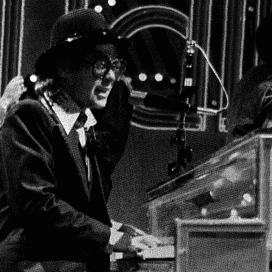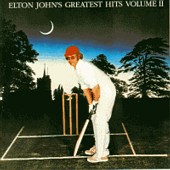|
One day, Billie surprised Elton with a special track suit, customized just for him. Elton was so touched that he promised to dedicate one of his "next big hits" to her. "Billie, I'm going to write a song for you," Elton said. "Just wait and see." She laughed and thanked him, assuming he'd quickly forget such an off-the-cuff vow.
A short time later, Billie was in Denver, embroiled in a crucial playoff game. Suddenly, Elton entered her locker room, bearing a hand-held tape recorder. With a nervous grin, he punched up a track he had just completed, and awaited her reaction. For many long minutes, the tune played on. And then she smiled. Billie Jean King loved the song. Single copies of "Philadelphia Freedom" carry Elton's dedication to "B.J.K.," as well as to "the soulful sounds of Philadelphia" -- a clear nod to the Gamble-Huff-Bell school of R&B. The record was Elton's answer to dance music mania, and was, in fact, one of the largest-selling disco singles of all time. It was also one of the longest -- and on purpose, too. In the months before, a national programmer had lashed out at Elton for releasing 45s that clocked in at over four minutes. They were lousing up his formats, and therefore, the man announced a boycott of any future Elton John records that violated his time restrictions. Elton's response was "Philadelphia Freedom" -- a hit so big that the man was forced to program it.
"Philadelphia Freedom" broke in America in early March 1975, and by April, was a gold record, the top-selling single in the country. It quickly became Elton's most popular 45 yet, a fact that didn't surprise his lyricist, Bernie Taupin. Bernie, though, downplayed his role in the song's success. "I'm quite honest about it," he said. "I'm sure fifty percent of the people who liked it never even listened to the words. People don't buy a record because the words are good, or the words sound nice. They buy it for the old thing melody, or 'It's got a good beat, man. Yeah, I can dance to that one.' The words, at least in the beginning, are secondary. "Later on they may play a part, because you have to have something to sing along to. But on 'Philadelphia Freedom,' or any of the uptempo things, the words just aren't that important. If they're palatable, and you can sing them, that's all that matters."
No comments so far, be the first to comment. |


